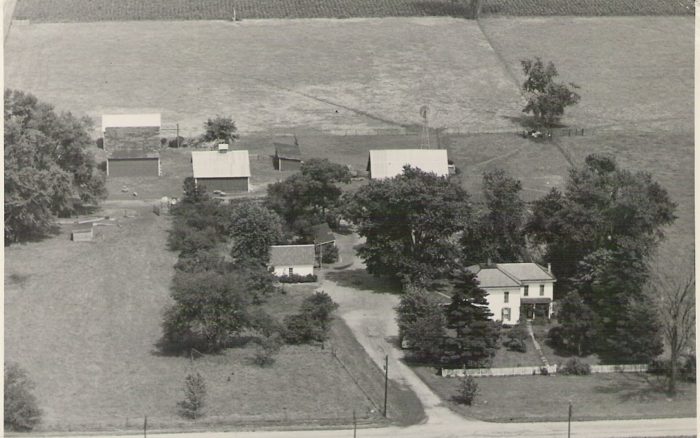| The house built by Thomas Pope |
Inheritances
You always wonder, will this be the last time? Saying goodbye to the old house is like that, the house built by my great grandfather Thomas Pope before the turn of the last century and populated by my family ever since. It is an East Lake house, rather grand in its day with its five bedrooms, one always used as a storeroom, and dining room, parlor, and kitchen. The back porch is screened and has been the host of many family meals during hot summers. The front porch looks out onto a park lawn that once featured some of my grandmother’s flower gardens. The open screened doors, back and front, provide welcome cross ventilation in the farmhouse kitchen.
Five generations of my family were born, lived, and often died in this house. When my parents passed several years ago, my siblings and I embarked on the overwhelming task of cleaning it out. My family were not hoarders, but they were caught in the intersection of changing times, and they kept everything from both of their families, storing it in the storeroom and attic, closets and basement, pantry and every possible nook and cranny. As my husband said, no one ever really moved out! There were letters between relatives 150 years ago, journals of the first family settlers in Old Stonington in the early 1800’s, newspapers from the first and second world wars and other pivotal events, valentines, more letters, pieces of dead relatives’ hair, baby clothing of my father’s and uncles’, wedding dresses and suits, school books and notes of generations, library books from the old Washington schoolhouse, which was one half mile down the road and remodeled into the home I grew up in. Wooden desks, dishes of my parents, grandparents, great aunts and uncles, and great grandparents, desk contents from generations, and the list goes on and on. And while I have promised to never do this to my own children, a promise I hope that I can keep, I realize that this is also a sacred task, one that my parents were not up to and perhaps one that can be done only now, in this generation.
While I am certain that my own children and grandchildren do not want these generations of family heirlooms and junk transferred into their own attics for storage (should they ever have attics!), I am also aware these objects tell stories my descendants may need. So my siblings and I sort these personal items: the notebooks of Della, my grandmother’s youngest sister who died at age 10 during the 1890’s flu epidemic that also took her mother, my great grandmother, a few days later. See? Here she printed her name with the funny little intimacies of her day that meant nothing then— until she died. My grandmother, a teenager at the time she lost them both, kept these booklets like precious jewels.
I told my sister, it’s not the objects, it’s the stories we need to save for our children and grandchildren and great grandchildren, stories gleaned from these fragments of letters and objects. That’s our job. The story of how before tiling and draining the prairie for farming, there was a lake between Blue Mound and Stonington that you could ride a horse into. How when my paternal grandmother was a girl, the prairie chickens blackened the sky at times, prairie chickens not seen in these parts for decades. How my paternal grandfather dealt with a biting mule. How my maternal great grandmother sat on the lap of her Springfield neighbor Abraham Lincoln when she was a little girl. (My great niece Clare, aged 4, loves to tell this story!)
So if my sister has to sell the house she chose to be her inheritance, we will deconsecrate it, but like the living flame that is removed to new premises, the stories of our family will live on. I look back at the house as I leave this time, the air so thick with humidity that you can almost swim. Here’s the mock orange my mother loved to use for bouquets and the iron pot my grandmother planted petunias in each summer. The pump by the back door where my great grandmother, and grandmother, and father, and I drew water, and the summer kitchen where the women cooked for the men when they came in at noon. My siblings, cousins, and I will write these stories for our grandchildren and nieces and nephews. We will leave the stories, their inheritance, that they can suck the marrow from them. May it take generations.
